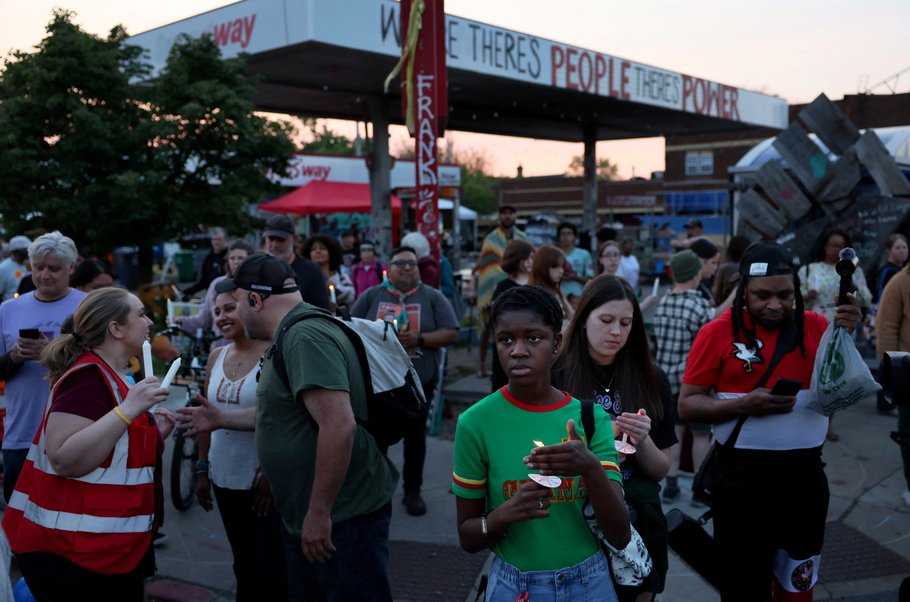- Published On
- May 30, 2025
- Written by
- Kirstin McCudden from Freedom of the Press Foundation
People take part in a candlelight vigil on the fifth anniversary of the murder of George Floyd in Minneapolis. Earlier that week, the Department of Justice announced it was dropping federal oversight programs for police reform in the state.
Friends of the U.S. Press Freedom Tracker:
The same week the Justice Department announced it was dropping federal oversight programs and investigations into more than two dozen police departments, including in Minneapolis, the city held a remembrance acknowledging the passage of five years since the May 25, 2020, murder of George Floyd by a local police officer.
The Biden-era reform program for law enforcement followed Floyd’s death and the fatal shooting that same year of Breonna Taylor by police during a botched home raid in Louisville, Kentucky. The wave of social justice protests that followed demanded, among other things, police reform.
These consent decrees, made in agreement with the cities but not yet in effect, laid out requirements for how law enforcement would be trained and disciplined. Notably, both Minneapolis and Louisville agreements included protections for First Amendment activities, including interactions with journalists.
Louisville’s consent decree outlined the establishment of guidelines for dealing with and identifying members of the press. In Minneapolis’ consent decree, a section devoted to protecting journalists’ rights to gather and report the news detailed that the police department would not “intentionally impede or discourage” individuals from newsgathering.
In the months following Floyd’s murder, more than 90 journalists were assaulted by law enforcement while covering demonstrations in Minnesota; more than 40 journalists were arrested.
Covering protests in Minnesota: Assaults of journalists at Black Lives Matter demonstrations
In total, in the one year following the May 2020 death of Floyd, police arrested nearly 160 journalists covering Black Lives Matter demonstrations across the country. More than 620 journalists were assaulted — about 86% at the hands of law enforcement — in that same timeframe.
Lacking federal oversight, journalists are left to the policies and reform measures — if any — at the state and local level and otherwise to seek protections or relief in the courts.
That’s why at least 50 journalists have filed First Amendment lawsuits against law enforcement after their assaults or arrests during the Black Lives Matter protests, according to our data. As of today, 6 of those lawsuits — involving 18 journalists — are still pending.
Other notable updates and incidents
- On May 2, the Las Vegas Review-Journal reached a settlement with a Nevada police union, stemming from the union’s 2023 suit over the paper’s use of footage from inside a detention center. Under the terms of the agreement, the union paid some of the paper’s attorneys fees and agreed to dismiss the suit. “Outside parties do not dictate our news coverage,” said Glenn Cook, Review-Journal executive editor.
- On May 21, Federal Trade Commission Chair Andrew Ferguson opened an investigation into the nonprofit Media Matters for America. The media watchdog told the news site Status the formal probe was a political hit: “The Trump administration has been defined by naming right-wing media figures to key posts and abusing the power of the federal government to bully political opponents and silence critics.” Two Republican attorneys general previously sought information from the nonprofit after it published a critical investigation of Elon Musk’s social media platform X.
- Secretary Kristi Noem said this month she’s subjecting Department of Homeland Security employees to polygraph exams in an effort to find and quash leakers. FBI Director Kash Patel directed the bureau to do the same.
